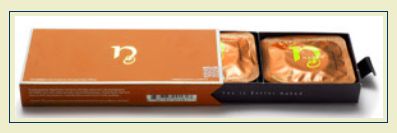The U.S. Court of Appeals for the Federal Circuit has reversed (and remanded) the TTAB's decision dismissing a petition for cancellation of a registration for the mark NAKED for condoms. The Board ruled that Petitioner Australian Therapeutic lacked standing because it had agreed not to use or register the mark NAKED for condoms in the United States, and further had agreed that Respondent could use and register the mark, and so Australian did not have a real interest in this proceeding or a reasonable basis for its belief of damage. [TTABlogged here]. The CAFC, however, ruled that "the absence of proprietary rights does not in itself negate an interest in the cancellation proceeding or a reasonable belief of damage." Australian Therapeutic Supplies Pty. Ltd. v. Naked TM, LLC, Appeal No. 2019-1567 (Fed. Cir. July 27, 2020).

The CAFC began by observing that, although the Board discussed the issue in terms of "standing," the proper question is whether Australian "has established entitlement to a statutory cause of action under Section 1064," which provides that a petitioner may seek cancellation if he "believes that he is or will be damaged" by the registered mark.
The Board erred in requiring Australian to establish proprietary rights in its unregistered mark in order to state a cause of action under Section 1064. See, for example, Jewelers Vigilance, 823 F.2d 490 (Fed. Cir. 1987) (trade association may have standing to oppose a mark's registration without having proprietary rights).
The Board found that Australian had contracted away its right to use and register its unregistered mark, [Australian had also agreed that Respondent could register and use the mark]. However, according to the CAFC, "[c]ontracting away one's rights to use a trademark does not preclude a petitioner from challenging a mark before the Board." Although an agreement "could ultimately bar Australian from proving actual damages, Section 1064 requires only a belief of damage. [Emphasis by the court].
The court then turned to the issue of whether Australian has a real interest and reasonable belief of damage such that it has a cause of action under Section 1064. The court concluded that Australian satisfied those requirements because it twice filed trademark applications that were refused registration based on likelihood of confusion with respondent's mark, and because it was producing and selling merchandise bearing the mark since 2003. The second application (filed after the cancellation proceeding was commenced in 2006) remains suspended pending the outcome of the cancellation proceeding.
The Board therefore reversed and remanded the case to the TTAB for further proceedings.
Judge Wallach's dissent, which matched the majority opinion in length, agreed that a party need not prove a proprietary interest, but he disagreed that the Board required such proof and disagreed that Australian has met its burden of proving a real interest and reasonable belief in damages.
Judge Wallach opined that Australian did not have a legitimate commercial interest in the proceeding because it contracted away any such interest. Moreover, the Board merely required Australian to prove its allegations, not to prove that Australian has proprietary rights in the mark.
Finally, Judge Wallach pointed out that standing must exist and the commencement of the proceeding, and Australian did not file its second application until after the proceeding commenced.
Therefore he agreed with the Board that Australian had failed to prove a legitimate commercial interest on which to base its petition for cancellation.
Originally published July 28, 2020.
The content of this article is intended to provide a general guide to the subject matter. Specialist advice should be sought about your specific circumstances.
